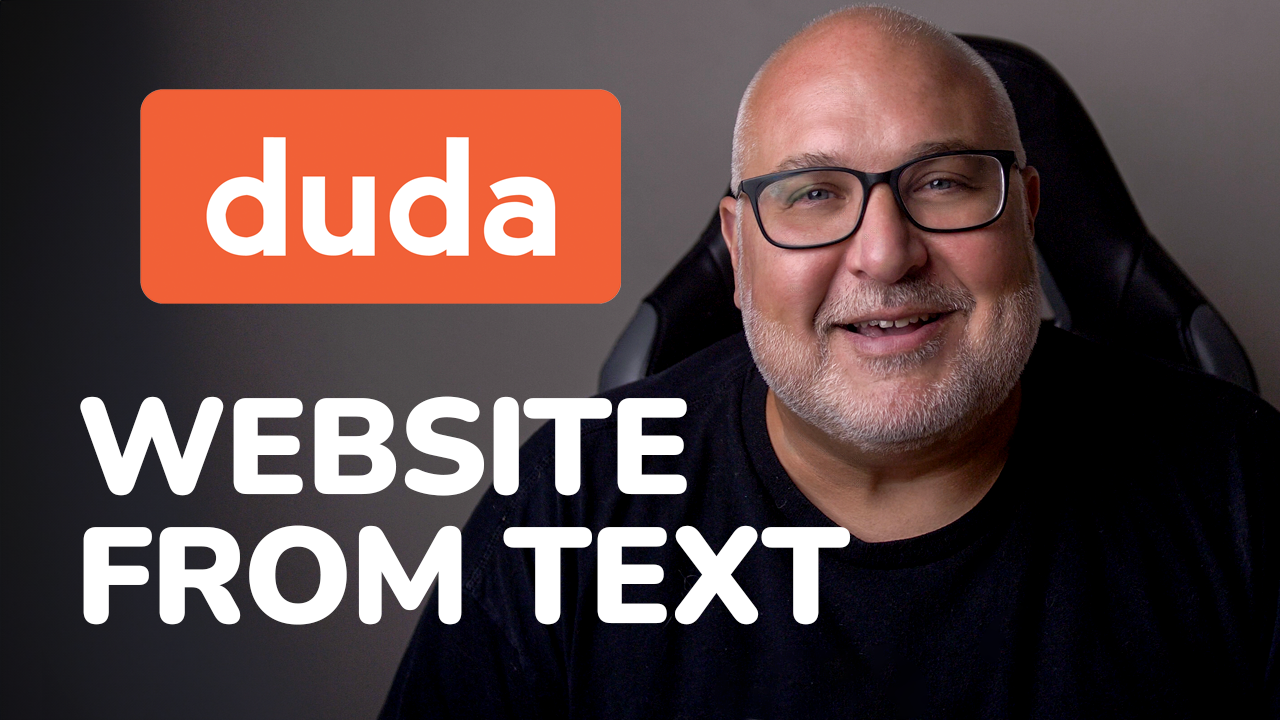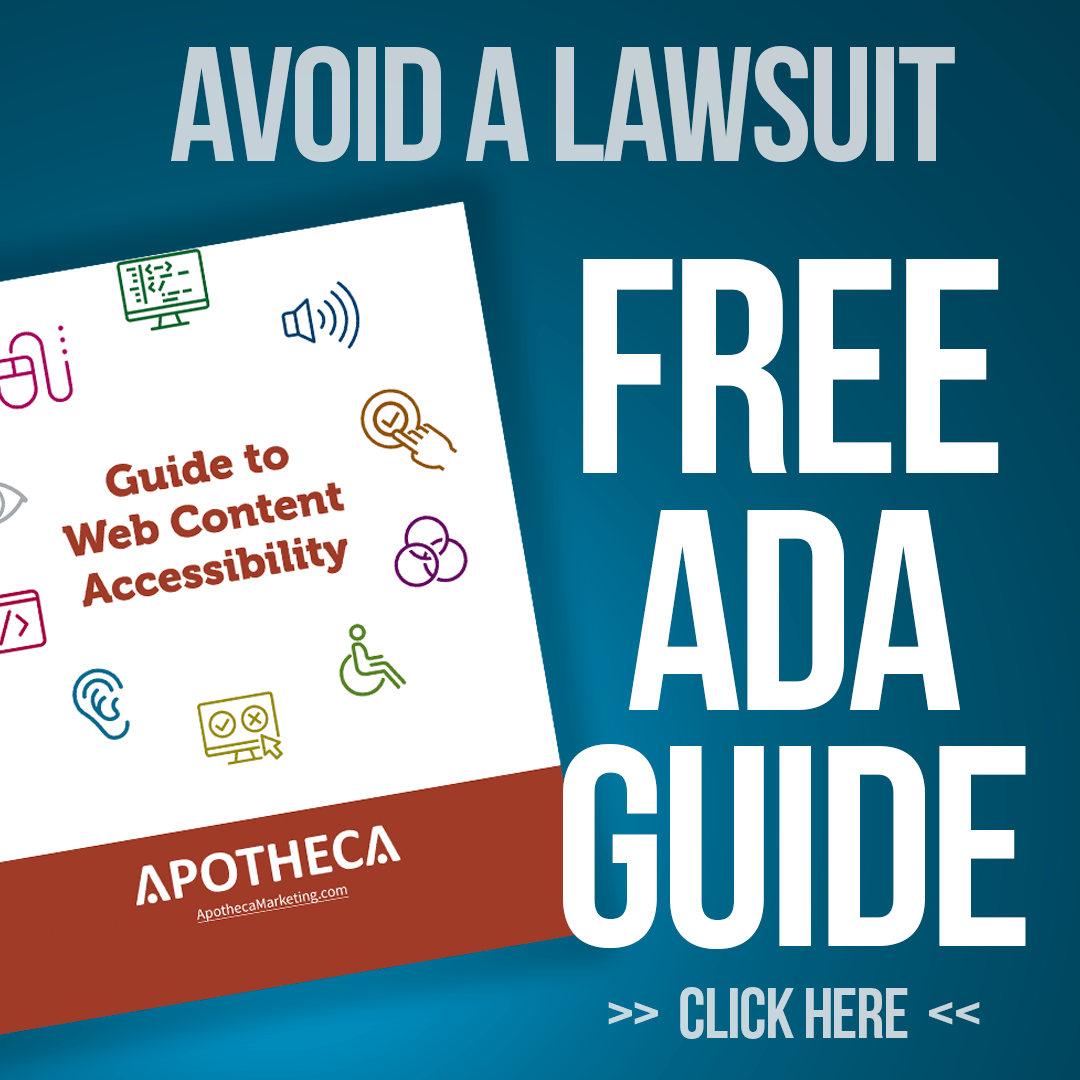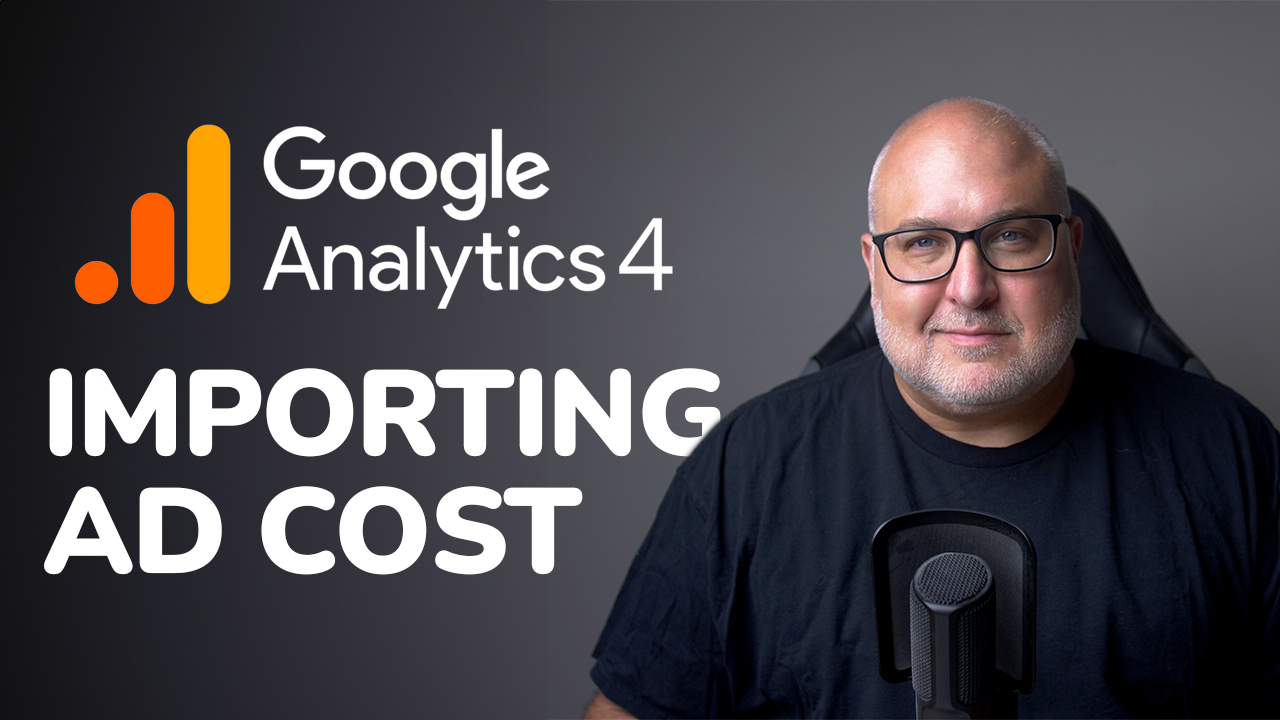Why We Don't Recommend WordPress
Roy Bielewicz
Sure, WordPress is super popular, but here's why we don't recommend it for our clients.
WordPress websites account for approximately 37% of all websites. But we don't recommend it for our clients, and don't use it for new sites that we build. Find out why, and what we recommend that you use instead.
Check Out Our Podcast!
Spotify: https://open.spotify.com/show/2DKfhZILOf8mS8WdZ5PceU
Apple: https://podcasts.apple.com/us/podcast/real-marketing/id1642968872
Google: https://podcasts.google.com/feed/aHR0cHM6Ly9hbmNob3IuZm0vcy8xM2VjMWRiMC9wb2RjYXN0L3Jzcw
Transcription:
Today I'm going to say something a little controversial and that's that we don't recommend WordPress. I'm going to tell you why in a second.
As you know, WordPress is one of the most prolific and common website platforms in content management systems on the web it's used on thousands and thousands of websites. In fact, something like 37% of all websites are using WordPress; it's been around for a long time. There are a ton of people who know how to use it, so chances are people at your company have probably used it in the past and they know how to use it and make changes and that type of thing.
There are tons of developers out there that can help you with WordPress projects and that's one of the reasons why it's so popular. So many people use it, it's something like 60% of all content management systems. That's one of the reasons why it's popular. It's kind of self-perpetuating.
There's also a huge number of possible plugins that you can use. It's something like 55,000 plugins for WordPress that add all sorts of functionality to your website. It's got integrations with most major platforms. If there's something that you want to do with a website like scheduling or email gathering, or you name it, there's a plugin for it.
There are also tens of thousands of themes. From a look perspective, you can absolutely customize your website with just thousands of themes that are out there that will give the look and feel to start with to help you customize your site. Then from a customization standpoint, it's hugely customizable. If you have a good programmer or developer or if you know HTML and the ins and outs of CSS yourself, you can go in and customize most themes in most websites and get it exactly the way you want it and looking however your client wants it, if you're an agency. That's one of the cons as far as we're concerned with WordPress, in general, it can be difficult to use.
Takes Time to Learn and Customize WordPress
A lot of people are familiar with it, but from the outside looking in, the ramp-up time to use it is a bit more difficult than some of the other platforms out there. It doesn't have the sophisticated drag-and-drop functionality that a lot of modern platforms have.
WordPress Plugins
One of the cons that I see is, it's both a pro and a con, in the plugins. The plugins are necessary for pretty much everything in WordPress. If you want to do something as simple as take a page that exists on your website, copy it, and duplicate it, so you don't have to rebuild that page, it needs a plugin. If you want to back up your site, it needs a plugin. If you want to do pretty much anything on your site, you've got to go shop around and find a plugin. As I said, there are 55,000+ plugins, but who's developing them? You don't know. You don't know if that plugin is going to be around.
Another one of the big cons that I see, from a WordPress standpoint, is the fact that not only do you have to find plugins for everything but they're not vetted by WordPress. This means those plugins could be developed by anybody and it could be a company that goes away eventually or isn't updating its plugins to keep pace with potential security risks. Ultimately those plugins and themes that you're buying from, who knows who developed them, are a security risk to your site. They can get hacked. They can be incredibly out of date so they're not functioning correctly anymore.
WordPress Manual Updates
One of the big problems with WordPress sites is, not only do you have all of these plugins by different developers and they are a security risk, but you also have to update them. If updates are available, you're constantly having to monitor that, making sure they're updated, making sure they're not a security risk.
If one of them goes away, if the developer goes away, and they can't update it, now you have to go find another web plugin to make sure that it's working with your themes and all the other functionality. Sometimes that interdependency means that if one plugin goes away, you might have to go find a couple of others that are going to work with the new one. It causes a lot more development time and effort and management than we're willing to do for most of our clients.
To be quite honest, when we come into a lot of new projects where a client has a WordPress website, there's inevitably a huge number of plugins that are outdated. The themes are often outdated and in some cases, you have to rebuy the license so that can get costly over time. Then you're not sure that it's going to work, that the new version's going to be compatible with the website. We've seen many times where we've had to go in, try to update all those plugins, replace them and in some cases, rebuild functionality on the site, which causes a big delay when ideally you're just going in to update content. Now you're having to redesign and reimplement portions of the website.
Security Issues with WordPress
From a security standpoint, we can't minimize how vulnerable WordPress sites can be. It's largely due to not updating the platforms, but also the need for having security plugins, which a lot of other sites don't need. Stats show that something like every one in six WordPress sites has been hacked or is vulnerable to hacking. We've run into this with our clients where we've seen a site and we've come in and their site's running slow or they're getting weird security warnings and it was hacked and being used as an email server to send out Viagra emails or whatever they were sending.
WordPress says that because of its ubiquitousness, there are so many of them out there, and it makes an easy target. If you're a hacker and you're going to focus on penetrating a site, it probably makes sense to try to penetrate a WordPress site. They're going to look at those apps and vulnerabilities, they're going to want to go after sites that are the most vulnerable.
We saw a recent statistic that said that more than half a million WordPress sites were compromised by attackers in just 2021 alone. Not to spread fear and not to spread anything like that but the reality is that if you're not maintaining your site, which a lot of them are not maintained, they are a security risk.
WordPress Hidden Costs
Another benefit that a lot of people like about WordPress sites is the cost. There are a million web hosting providers out there that you can get for five, 10, $15 a month. The actual CMS itself in WordPress is free. It's open source and you can theoretically start a website for as little as $5 a month, but that's not taking into consideration the price of additional plugins if you want to buy a theme, that's well made, that's responsive, that's actually maintained by the developer. You're looking at, in some cases, a couple of hundred dollars for a theme. If you want to add SEO plugins like Yost and that type of thing, you're looking at licensing that.
The entry level for WordPress sites is relatively low. You can get a functional website for very little money. Now, as soon as you start adding the plugins and functionality and you start getting a lot of traffic, then it scales very quickly and suddenly that very low entry dollar website for $5 might be $300 a month. Then every time you need to make a change, that is a custom change, you might have to hire a developer to do it if you don't know HTML and that type of thing. That can get very expensive very quickly. From personal experience, we know that a lot of times going into a site that you didn't develop yourself, with all the various plugins and all the customizations, can take a very long time for the developer to figure out what's going on on the site and where those changes need to be made.
Making Changes Takes Time
There is a long learning curve if you're coming into a site, that's been already built and just trying to figure out what was done and what needs to be changed. Something that on another platform might take minutes, may take hours on a WordPress site just to figure out those changes. Most of the other platforms that we're going to be talking about in a second are more plug-and-place. You don't need the number of plugins and that type of stuff to maintain and manage.
Other Options
So, what are we using instead of WordPress? Well, it really depends on your business. It depends on the size of your company. It depends on the technical skills within your company. I hate to say it, but it depends.
The ones that we like particularly are those that are relatively common and easy to access for most people. Especially for eCommerce we definitely recommend, instead of going with WordPress and WooCommerce combination, doing something with Shopify. Shopify is an incredibly robust, incredibly low cost for the benefit of its e-commerce system that we'd highly recommend for most companies to use for e-commerce. Whether you're just starting out, mom-and-pop selling a few things, or whether you have thousands of products and need inventory management and that type of stuff. All of that is baked into Shopify and is extremely readily available.
Shopify is also pretty easy to use and it does require in some cases plugins and themes. The difference between Shopify and WordPress is that those plugins are all vetted by Shopify. Those themes and the plugins and the apps that you're going to buy for your store have been reviewed. They have to meet certain standards and they're most likely to be maintained on a regular basis. Those that are free from Shopify, also integrate with lots of different things which you can integrate with Facebook and integrate with Google shopping and all sorts of different platforms. Email platforms are generally free and you get a lot of functionality without having to maintain those apps and update them regularly; the platform takes care of that for you.
Another great entry-level platform is, Wix. I'm sure you've seen the ads for it; it's extremely easy to use. It's one of those drag-and-drop websites and it does get a few people to disparage it, especially in the industry. Like, “Oh, it's not a professional platform.” But it depends on your needs. If your needs are very simple and you are going to have your own company and your own people on your marketing team, updating it and developing it, and adding stuff, then you don't need to hire developers. Once the site is set up, as long as it's looking great, you can then maintain it yourself. From an entry-level standpoint, for small and medium-sized businesses that just need some basic functionality for their site, Wix is a good opportunity and a good platform to use for that.
Another one that a lot of people haven't necessarily heard of that we use for some of our clients is Duda; it's drag-and-drop, it's extremely easy to customize, and there are not a lot of plugins but that is also a con. You can scale it to multiple sites very easily. You can copy sites very easily. From an agency perspective, we use it for very simple sites that we can copy. Say a company has three or four very similar websites that they need to use in property management or something like that. We can copy those sites and then customize them very quickly. The time between the start and finish of a project is dramatically reduced. The cost for our clients is dramatically reduced because it is so easy to use.
Again, you don't have to worry about updates. You don't have to worry about plugins. You get SSL, you get all that kind of stuff, all baked in. You don't have to worry about the hosting that's provided. All of that stuff is a potential security risk that you may have to shop around for and adjust and tweak on other platforms you don't have to do with either Wix or Duda.
Another platform that we like to use with our customers is Webflow. Webflow is not as entry-level as Wix or Duda. You can get extremely finessed with the layout, but again it is still drag-and-drop. You can make adjustments across the look and feel of it without understanding any code; it's not necessary to know the code. You don't have to do lots of plugins but there are plugins and that type of stuff theoretically available. There are integrations you can plug in as far as integrations with your email providers and stuff like that, using code insertions. There are some drawbacks as far as just the breadth of plugins that you need, but again, you don't need the plugins for just basic functionality as you do on WordPress. You can copy and paste things. You can actually back stuff up and all that stuff without needing a plugin.
These are just a few of the platforms that we use instead of WordPress. There are a million others out there and again, it all depends on your needs. It depends on how sophisticated your development team is or your marketing team. It really depends on what your business goals are. If you're an informational site, you don't necessarily want to go with Shopify. If you're a commerce site, go with Shopify.
It's a good idea to start looking at your website, sort of looking at the time it takes to maintain this potential security problem that you might be having with your site. Look at potentially migrating to another platform that will make ease of use and the ability to update your website more accessible to your marketing teams, and to the people working at your company.
There's no need in this day and age to go hire a development company or even an agency like ours to make simple changes to your website. That's something that we tell all of our clients, we don't want to tie you into a retainer agreement for us just to maintain your website; that doesn't make a lot of sense.
If it's stuff like we're writing content and there are lots of significant changes to the website on an ongoing basis then yeah, that might make sense because if we're developing new structures and designs and that kind of stuff all the time, which we do for some of our clients, then that makes sense.
But if you're just making small changes, adding blogs or updating calendars, or maybe changing things seasonally then it's really good for you to explore some of these other options that are not WordPress.
Contact Us





